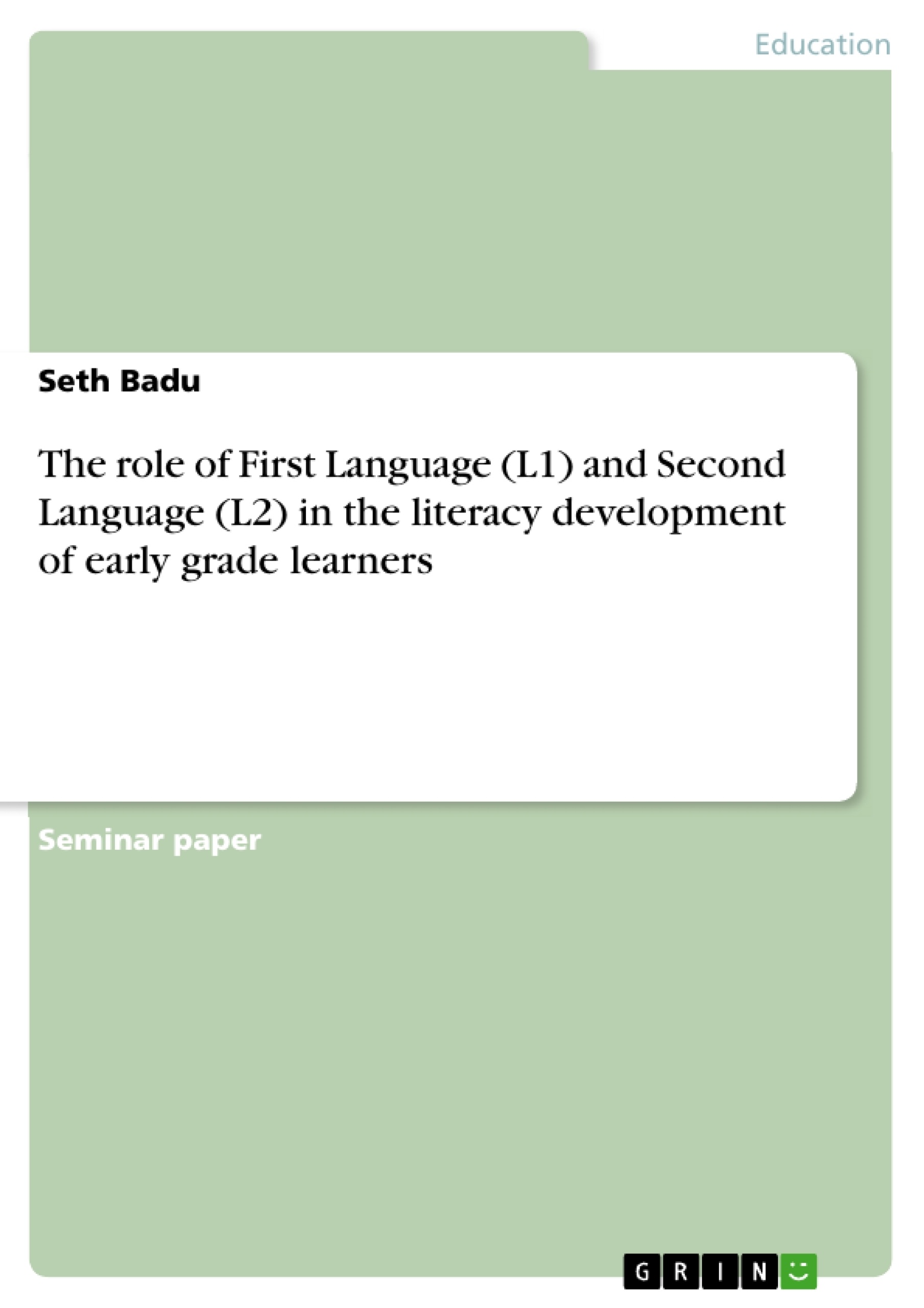This paper discusses the role of First Language (L1) and Second Language (L2) in the literacy development of early grade learners. It will critically analyse the challenges associated with literacy development and suggest ways in addressing the challenges. In line with this, it shall also discuss the meaning of literacy, the concept first language (L1) acquisition and the stages of L1 acquisition, the concept of second language (L2) acquisition and the stages of L2 acquisition.
Literacy stands as a cornerstone for a child's success in both school and life. A deficient literacy foundation before formal schooling not only diminishes the likelihood of later literacy success but also heightens the risk of children disengaging from formal education. A high-quality early education is crucial for the long-term academic success of all learners. Active engagement in the literacy development process enables children to hone their literacy skills.
Early grade learners establish a robust foundation for literacy when provided with opportunities for purposeful, meaningful language activities and early exposure to print. Effective early literacy instruction, therefore, furnishes developmentally appropriate settings, materials, experiences, and social support, fostering the flourishing of early reading, writing, speaking, and listening skills into conventional literacy.
Numerous definitions of literacy exist, all grounded in oral language and the ability to write legibly. Literacy development spans an individual's entire lifespan, from birth to death. It is essential to comprehend literacy within this developmental framework, particularly in the crucial early years. UNESCO's proposed operational definition asserts that literacy involves identifying, understanding, interpreting, creating, communicating, and computing using printed and written materials in various contexts.
This definition embraces the diverse dimensions of literacy, recognizing that people acquire and apply literacy for varied purposes shaped by culture, history, language, religion, and socio-economic conditions. Literacy, according to UNESCO, is not a uniform set of technical skills but is culturally, linguistically, and temporally diverse, shaped by societal institutions and communication patterns.
Table of Contents
- Introduction
- Meaning of Literacy
- First Language (L1) Acquisition
- Stages of First Language (L1) Acquisition
- Pre-language stage (3-8 months)
- One-Word stage or Holophrastic stag (9-18 months)
- Two-word stage (18-24 months)
- Telegraphic stage (24-30 months)
- Stages of First Language (L1) Acquisition
Objectives and Key Themes
This paper examines the role of First Language (L1) and Second Language (L2) in the literacy development of early grade learners. It critically analyzes the challenges associated with literacy development and proposes solutions to address these challenges. Additionally, the paper explores the concept of literacy, the process of first language acquisition, including its stages, and the concept and stages of second language acquisition.
- The importance of literacy for early grade learners
- Challenges associated with literacy development
- The concept of literacy and its various dimensions
- The process of first language acquisition and its stages
- The process of second language acquisition and its stages
Chapter Summaries
The introduction highlights the significance of literacy for a child's academic success and emphasizes the importance of early education in developing literacy skills. The chapter on the meaning of literacy presents various definitions, emphasizing the importance of a comprehensive view of literacy development across the lifespan. The section on First Language (L1) Acquisition defines L1 and discusses the concept of language acquisition, emphasizing the role of naturalistic exposure and caregiver interaction in language development. The final chapter on the stages of First Language (L1) Acquisition details the predictable stages of language development, outlining the key characteristics of each stage, from the pre-linguistic stage to the telegraphic stage.
Keywords
The key terms and concepts explored in this paper include: literacy, first language (L1) acquisition, second language (L2) acquisition, stages of language development, early grade learners, literacy challenges, and the importance of early education.
- Quote paper
- Seth Badu (Author), 2019, The role of First Language (L1) and Second Language (L2) in the literacy development of early grade learners, Munich, GRIN Verlag, https://www.grin.com/document/935179



